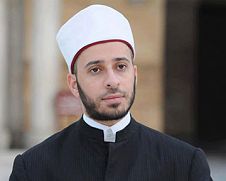Sheikh Usama Al-Sayyid Al-Azhari was appointed Minister of Awqaf (Religious Endowments) in July 2024. He is an Azhari scholar, preacher, and academic. He teaches Hadith, Logic and Islamic Creed at the renowned Al-Azhar Mosque’s Riwaq Al-Atrak in Cairo, Egypt. He also holds a teaching post in the Faculty of Usul Al-Din and Dawah at Al-Azhar University, Egypt.
Birth: 16 July 1976 (Age: 49)
Source of Influence: Political, Scholarly
Influence: Scholar
School of Thought: Sunni, Traditional Sunni
Status: Featured in current year
Sheikh Usama Al-Sayyid Al-Azhari was appointed Minister of Awqaf (Religious Endowments) in July 2024. He is an Azhari scholar, preacher, and academic. He teaches Hadith, Logic and Islamic Creed at the renowned Al-Azhar Mosque’s Riwaq Al-Atrak in Cairo, Egypt. He also holds a teaching post in the Faculty of Usul Al-Din and Dawah at Al-Azhar University, Egypt.
Minister of Awqaf: Sheikh Usama has outlined several key initiatives the Ministry will undertake, including: addressing extremism and related behaviour; instilling national pride; promoting creativity and enhancing the role of Islamic institutions; and working with Dar al-Iftaa, the Sufi Sheikhdom, and the Grand Imam of Al-Azhar. The aim is to unify efforts behind the Grand Imam, as well as to collaborate with the Ministry of Higher Education and the Ministry of Youth and Sports. This is in order to increase the presence of imams in clubs, youth centres and universities through advocacy campaigns and convoys.
Peace Activist: He is widely regarded as one of the most influential voices advocating for, and actively working towards, new interpretations rooted in Islamic tradition, while addressing contemporary realities. In this effort, he has introduced a number of innovative ideas aimed at renewing authentic Islamic perspectives through his scholarly work and publications. Among his contributions are the development of a relational map of Shariah sciences and their connections to other fields of knowledge, the establishment of “Islamic hermeneutics”, the revival of the tradition of auditing religious sciences and ensuring their transmission through a verified chain of transmission as a standard of authenticity, and exploring the Qur’anic accommodation of diverse civilizations, among others.
News about Usama Al-Sayyid Al-Azhari
- No approved news items yet.



